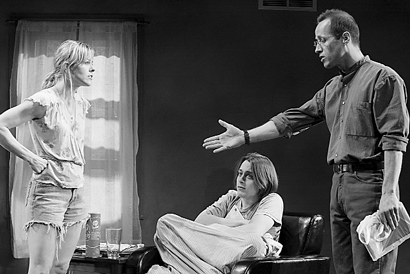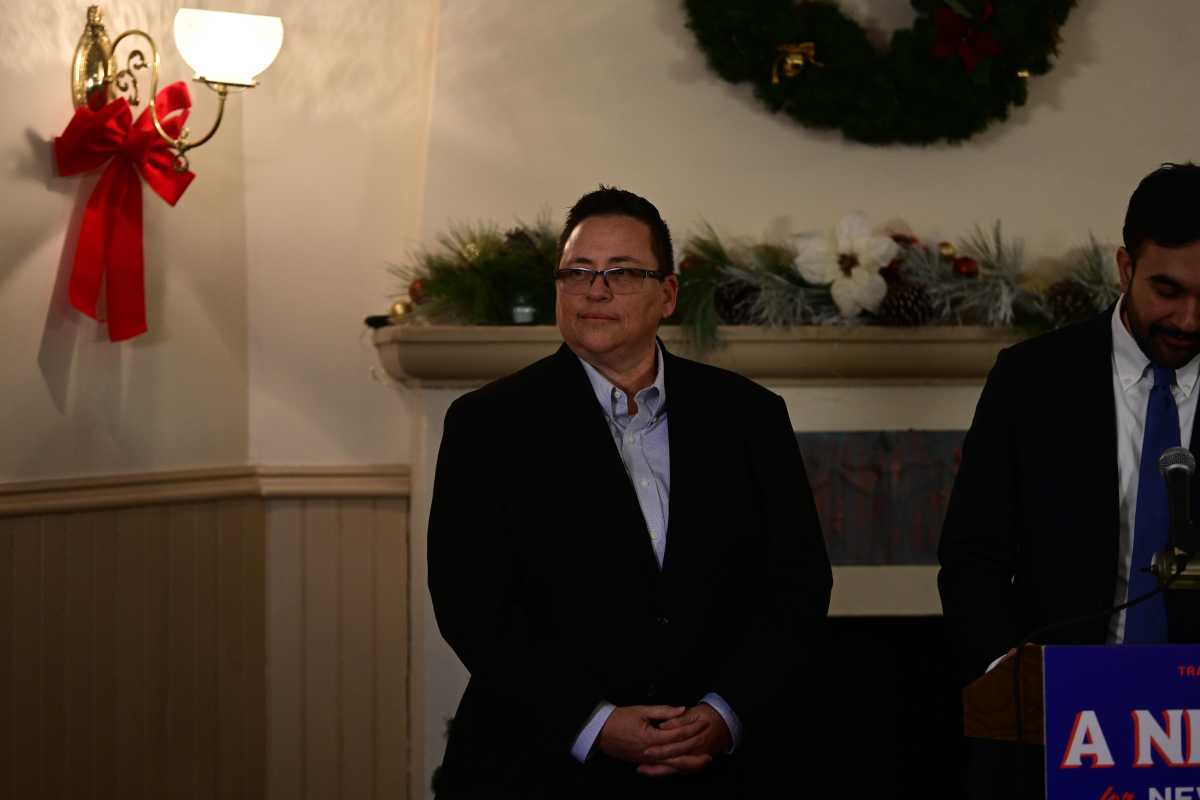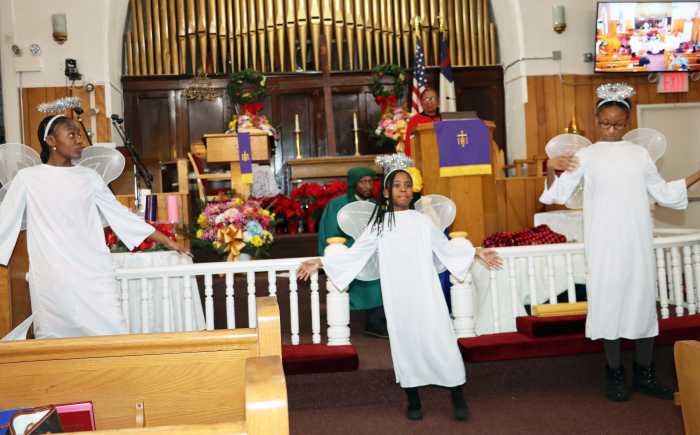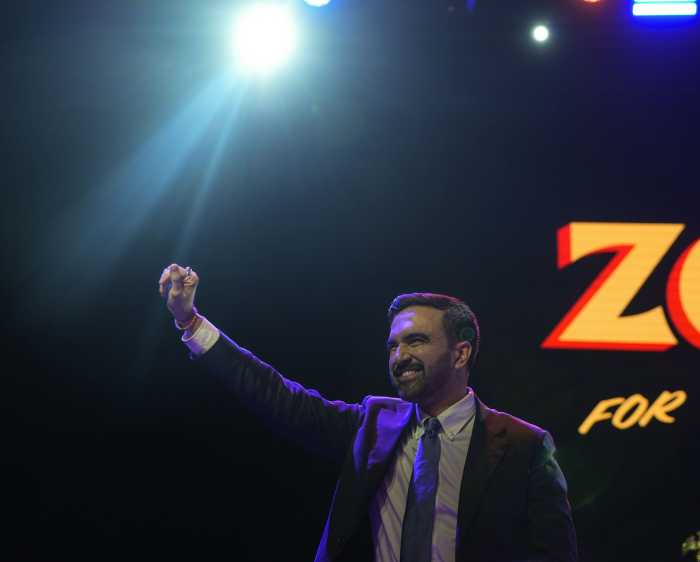A woman’s killing sparks an emotionally draining father-son rift
On a startling “Today” show segment following the September 11 terrorist attacks, host Katie Couric interviewed a group of heroes who had miraculously survived the collapse of the World Trade Center Towers.
When one of the guests began explaining that a voice on the public address system fatally ordered office workers fleeing the mayhem to return to their desks, the camera did not cut away fast enough, and the nation was shown Couric’s obviously discomfited expression. Apparently, such unvarnished comments were not meant for an early-morning segment scripted to exalt the human spirit.
In “After Ashley,” a searing new drama at the Vinyeard Theatre, this question of media-as-filter is explored to astonishing effect by director Terry Kinney who confidently handles an intelligent script by letting his actors approach subjects so volatile that, like handling an explosive, they require a deft touch.
The story is about the grisly murder of Ashley (Dana Eskelson), a 35-year-old middle-class mother, by a homeless man hired to do yard work. The victim’s husband, Alden (Tim Hopper), a bleeding-heart liberal and advocate for the downtrodden, authors a touching account of the ordeal that sparks a media frenzy. The play takes its title from the husband’s book, “After Ashley.”
There’s one problem, though. Their teenaged son, Justin (Kieran Culkin), closer to his mother than her husband ever was, knows the book is dishonest. Ashley was hardly the child-loving, beneficent saint she’s made out to be.
And we know it, too, thanks to a wonderfully intimate first scene with Ashley and Justin, bedridden with mononucleosis, bantering more like pals than mother and son. If anyone appears parental, it’s Justin, as he advises his lethargic, pot-smoking, mom resentful of her loveless marriage to “phone a friend” and “get out more.”
Ashley readily admits she’s no mother of the year.
“You survived me,” she says, a chilling foreshadowing.
Culkin, who plays Justin as a 14-year-old, then three years after the murder, nails the role. His transformation from sweetly precocious kid to damaged delinquent is piquantly disquieting. His first-act portrayal of an intense adolescent stricken with an illness demonstrates the texture with which he masters his character.
The pressure crushing this misunderstood “911 Kid”—his media nickname owing to his harrowing emergency call—is truly palpable. The 911 recording is incessantly repeated in the news (and in the play), and a sample was even mixed into a popular hip-hop riff.
When Justin meets Julie (Anna Paquin, winner of the Best Supporting Actress Oscar for her girlhood role in “The Piano”) a “victim groupie” with problems of her own, the two develop a dysfunctional bond that rattles him just enough to pivot from degradation to self-empowerment.
But the lies keep multiplying, and Alden is happy to perpetuate them. He becomes the host for a new reality-style television show that reenacts real-life violent crimes, with utmost taste, he defensively claims. His qualification, of course, is his wife’s senseless murder, of which he reminds viewers every chance he gets. The program’s title? “After Ashley,” of course.
The deceit ultimately pushes Justin to the brink of recklessness and, with Julie’s help, he attempts to undo him as well.
Unlike some news programs that seek to impose a point of view at the expense of veracity, “After Ashley”—the play, that is—deftly presents both sides of the debate. While Justin, who champions truth, is worthy of praise, do Alden and his producer (played by Grant Chaud with the officiousness of his Miles character in “Murphy Brown”) deserve opprobrium for collaborating with a voracious media culture?
The play examines the perhaps necessary role that denial plays when humans suffer tremendous psychic blows and strive to continue. Truth may be too uncomfortable to accept, but is it then okay to stretch it until it becomes bearable, as Alden believes when he asserts that “reality is a subjective construct”?
gaycitynews.com


































